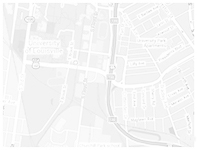Employers Advise Students to Build "Soft Skills"
EMPLOYERS ADVISE STUDENTS TO BUILD “SOFT SKILLS”
By Stuart Esrock, Ph.D.
The knowledge that college students are building in the classroom is certainly important. But in a recent virtual panel session, employers suggested that UofL students need to be developing a broader knowledge and skill set.
That was one of the takeaways in a virtual Q&A session from the University Career Center, featuring Aidan Keenan, a corporate recruiter for Kroger and Brittany Mecham, an integrated recruitment specialist from UPS.
Both Keenan and Mecham suggested so-called “soft skill” development is crucial. Soft skills pertain to things like how well you work in a team, problem-solving ability, management of people, leadership, and ownership/stewardship of projects. Also important, general communication skills like writing and speaking.
According to Mecham, “We always are looking for people who know how to talk because no matter what you are going to be doing and in whatever career you want, you are going to have to be able to talk to people. You really want to be able to make good connections and good relationships with your teammates because you are going to be relying on them, you are going to be working on projects together. So those soft skills are always good communication, problem solving and working with other people. Those are the top three that we really look for across the board with the recruiting that we are involved in.”
Keenan said a strong set of soft skills can yield short-term advantages for job seekers, but also longer-term benefits. "Connecting to your work ethic, your passion and drive. Those are important skills that will take you farther in your career."
Students should highlight soft skills as one facet of their resume since it has become an important factor that employers consider. What about GPA? Mecham said, “Your resume should show other skills that you have besides just ‘I’m really good at taking tests and I’m really good at getting my assignments in on-time.’ I think it’s definitely a piece of what we are looking for as an employer but it doesn’t tell the whole story and it’s not the end-all, be-all of determining if you will get a job or not.”
Because of the coronavirus pandemic, it appears for the foreseeable future that career fairs will be held virtually/remotely. Keenan said students should prepare for a virtual career fair the same way they would prepare for a traditional career fair in a physical environment. “It might look different but the preparation piece of it should still stay the same. So, it is still dress professionally, rehearse your pitch, really showcase yourself to that recruiter and be able to highlight your qualities. It also relates back to virtual interviewing too, having that quiet space where you can attend the career fair and if you are on video, having a non-distracting background. Take into account sound quality. Look into the camera and have direct eye contact so you are still having that digital ‘handshake.’ Although you are not actually touching, you are still doing that rapport piece which is really crucial.”
Mecham adds students need to do research in advance of virtual career fairs. They should know something about the companies they want to talk to, and also about the positions in which they have an interest. According to Mecham, that can very much help to guide the conversation.
Once those internship or job offers come along, students need to be prepared, at least for now, for the possibility of remote work. Keenan said in order to thrive, students need, “…to have a space that you call your own work space for the virtual environment and being flexible and adaptable to change since our environment is constantly changing.”
Mecham said for virtual work, students should set up a specific schedule. "You don’t have anyone there watching you. So, it is really up to you to have that perseverance and the hard work ethic to get everything done that you need to do during a day so that you really need to set up a good schedule. Another really important thing is to take breaks because it is a long day sitting at your desk every single day, on your camera or on your email, whatever project you are working on. It can get really long … take a break, stand up and walk around, move around a bit. And, schedule some time so you can meet with your team and that's not really work-focused. Every week we try to do something fun like a meditation, yoga, we’ve done a happy hour. Trying to keep some of that team-bonding there and making sure we are getting things done even though we are not all sitting together in the office.”
To watch the full Q&A session with Aidan Keenan from Kroger and Brittany Mecham from UPS, as well as other virtual workshops from the UofL University Career Center, visit the UCC Virtual Workship Page.

